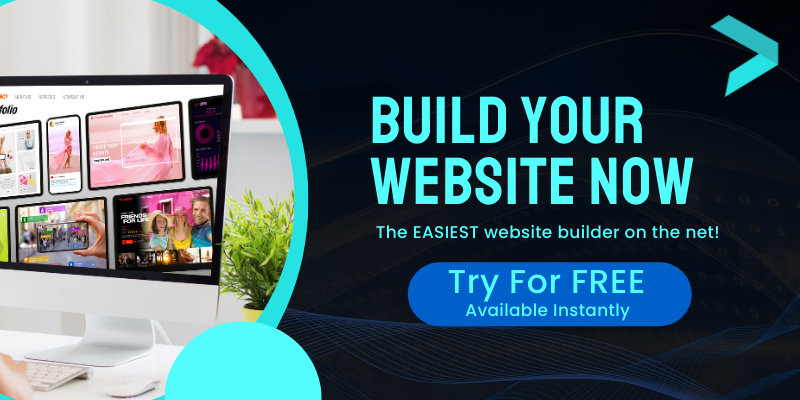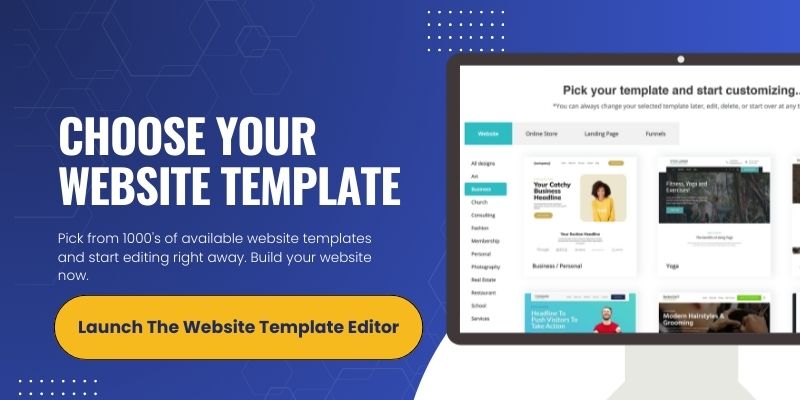A Beginner’s Overview of Website Builders
What is a Website Builder?
When I first stumbled into the world of website creation, I had no clue what a website builder was. Think of it as a tool that allows you to create a website without diving deep into coding or design work. It’s like putting together a puzzle where all the pieces are right in front of you!
These platforms provide templates that are both visually appealing and structurally sound. This lets you focus on the content and functionality rather than worrying about the technical side of things. Isn’t that a relief?
For beginners, this can be a game-changer! Many of these platforms come equipped with drag-and-drop features, making it super user-friendly, even if you’ve never launched a website before.
Benefits of Using Templates
Time-Saving Convenience
One of my favorite perks of using templates is how much time they save! Instead of starting from scratch, you can begin with a beautiful, pre-designed layout. I remember the countless hours I used to spend trying to figure out alignment and layouts. Now? Easy peasy!
Templates allow you to just plug and play. You can focus on adding your text, images, and other content. I mean, what could be better than spending less time designing and more time actually creating something awesome?
Also, many of the templates are optimized for responsiveness. This means they look great on both desktops and mobile devices. That’s a huge win, especially with so many people browsing on their phones these days!
Top 8 Platforms to Consider
1. Wix
Wix is one of the big players in the website builder game, and for good reason! It’s incredibly user-friendly and has a ton of templates across various categories. When I first built my website, Wix’s drag-and-drop editor was a lifesaver.
Plus, they have apps that can help enhance the functionality of your site. Want to add a booking system? You got it! I love how versatile this platform is.
Wix also offers a free plan, which is perfect for beginners who are just testing the waters. You can experiment with different designs without spending a dime!
2. Squarespace
Ah, Squarespace! It’s known for its stunningly modern templates. If you’re wanting a more elegant and visually rich website, this is the way to go. I remember using it for a portfolio site; it looked so sleek!
What I love about Squarespace is its built-in features for blogging, eCommerce, and social media integration. Everything feels cohesive, which is a huge plus.
Also, their customer support is pretty great if you ever find yourself stuck. They truly want to help you succeed, and that’s refreshing!
3. Weebly
Weebly is another gem for beginners. Its straightforward interface means you can get started in no time. I found it especially handy for small business sites due to its eCommerce features.
The templates are customizable, yet simple, which is perfect for those who want a clean and professional look. Plus, Weebly offers analytics tools, so you can monitor your site’s performance right from the dashboard!
For someone who’s just starting out, it really takes the pressure off not having to worry too much about the complex stuff.
4. WordPress.com
WordPress is practically the giant of website creation. While WordPress.org requires a bit more technical know-how, WordPress.com makes it accessible for everyone! I found the variety of templates there to be astonishing.
It’s also quite flexible. As you grow, you can transition to more complex setups. Plus, the blogging component is robust, perfect for anyone wanting to share their thoughts online.
Though you have to watch for add-ons that might cost, getting started on WordPress.com can be a great budget-friendly option.
5. Shopify
If you’re entering the or the eCommerce scene, Shopify has got your back! I was amazed at how streamlined it is for setting up an online store.
They provide a multitude of templates focused on selling products with built-in features to manage your inventory and payments seamlessly. It’s perfect for someone who wants to get a store up and running quickly.
Plus, their support is available 24/7, which means you can reach out for help any time you get stuck.
6. SiteGround
While primarily known for hosting, SiteGround offers great website builders that come with templates to help save you time. What I love about their platform is the transparency of their pricing and performance.
They put a strong emphasis on customer service, and the platform itself is easy to navigate. If you’re hosting with them, it’s super convenient to build your site right on their platform.
The templates feel fresh, and with some customization, you can really make them your own!
7. GoDaddy Website Builder
GoDaddy is a familiar name, and their website builder is as straightforward as it gets. It’s a great choice for total newbies like I once was. I appreciated how quick it was to set up.
The templates cover various niches, and the built-in SEO tools help get your website noticed. Plus, they have an AI-driven tool that suggests templates based on your answers to a few questions!
If you want something simple and effective, GoDaddy’s got you covered!
8. Jimdo
Jimdo is a bit less known but packs a lot of potential. This platform offers a unique AI-powered website creation option, which is perfect for those who want something customized yet easy to start with.
The templates are modern and flexible. Plus, their focus on mobile optimization means you can ensure your site looks good on any device right from the start.
It offers all the essential features you need and allows for some level of customization as you grow.
Choosing the Right Platform for You
Assessing Your Needs
Before diving into any of these platforms, it’s crucial to assess what you need. Are you building a blog, a business site, or an eCommerce store? That will greatly influence your choice. From my experience, thinking ahead about your goals can save you from a headache later!
Do you need specific features like blogging tools or payment gates? Make a list of must-haves, and you’ll find your perfect match much easier.
Also, consider your budget. Some platforms offer free versions but may come with limitations. Think about whether you’re willing to invest for more features!
Test Drive Your Options
Most platforms provide free trials or free tiers, so definitely take advantage of these. I usually try testing a couple of platforms before settling down on one. It helps get a feel for the design tools and overall usability.
Don’t hesitate to play around! Create a few demo sites. You’ll discover what you like and what feels comfortable to you. It’s all about finding what suits you best.
Remember, this is a fun journey! You’re building something, and exploring options is part of that creative process.
Seeking Support When Needed
Don’t be shy about seeking help if you get stuck. Many of these platforms have great community forums or customer service to guide you. From personal experience, reaching out has often cleared up my confusion in minutes!
Take advantage of online tutorials, webinars, and documentation provided by these platforms. They often have a treasure trove of useful information to help you along your journey.
Connecting with other users can also be hugely beneficial. Sometimes, a quick tip from a fellow user can change everything for you!
Frequently Asked Questions
1. Are website builders really free?
Most website builders offer free plans, but they may come with limitations, like ads or restricted features. If you want full access and features, you’ll likely need to upgrade to a paid plan.
2. How customizable are the templates?
Templates can vary in how customizable they are. Many website builders allow you to change colors, fonts, and layouts quite easily. However, to achieve more extensive changes, familiarity with basic HTML or CSS can help.
3. Can I switch platforms later?
Yes, you can switch platforms; however, it often requires some work. It’s best to keep your content backed up and be prepared for a certain amount of redesign to adapt to new platform features.
4. Do I need technical skills to use these builders?
Most website builders are designed for beginners, so you won’t need extensive technical skills. They offer user-friendly interfaces that guide you step by step through the creation process.
5. What’s the best platform for eCommerce?
Shopify is often considered one of the best for eCommerce due to its extensive features built specifically for online selling. However, platforms like Wix and Squarespace also offer solid eCommerce solutions!

